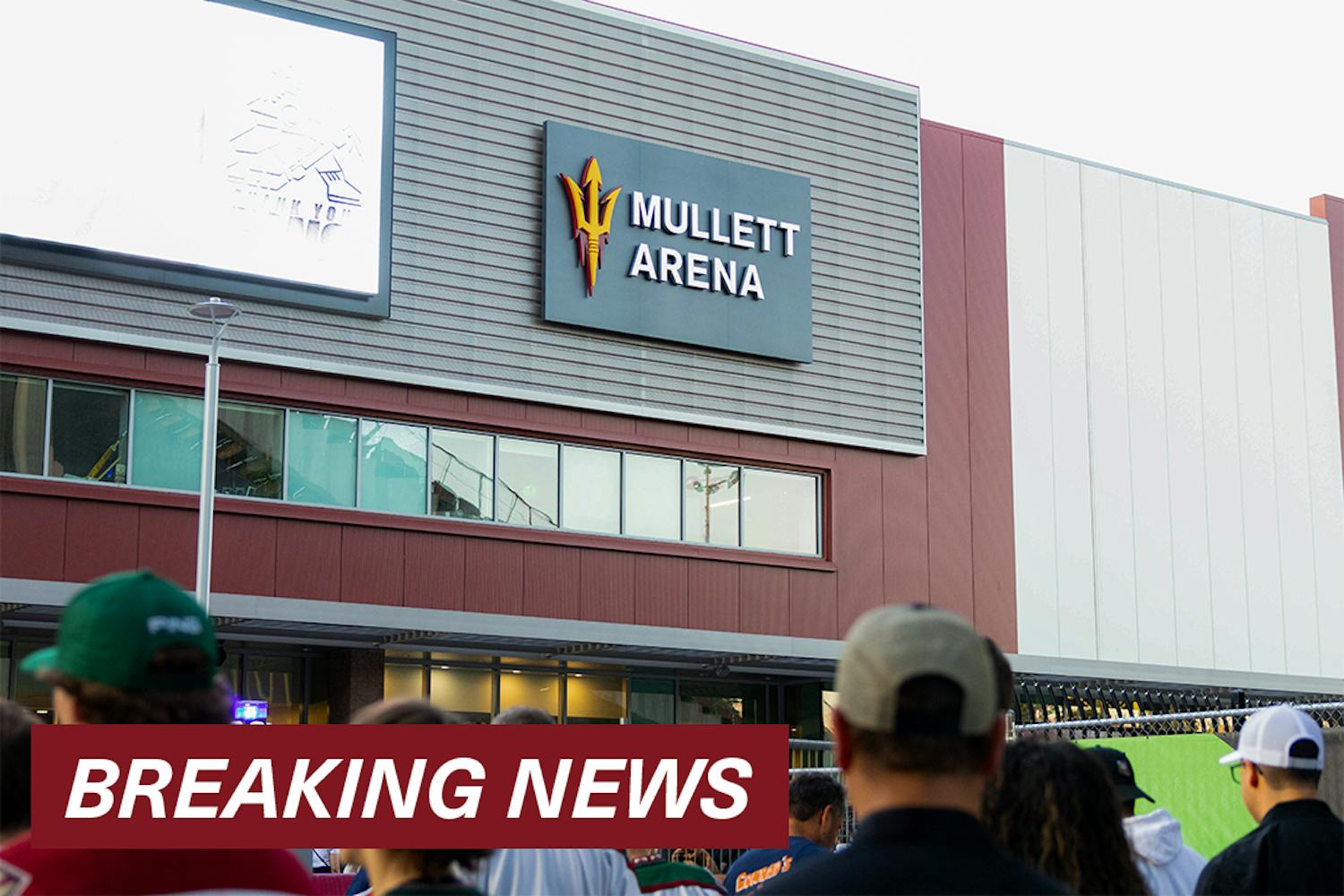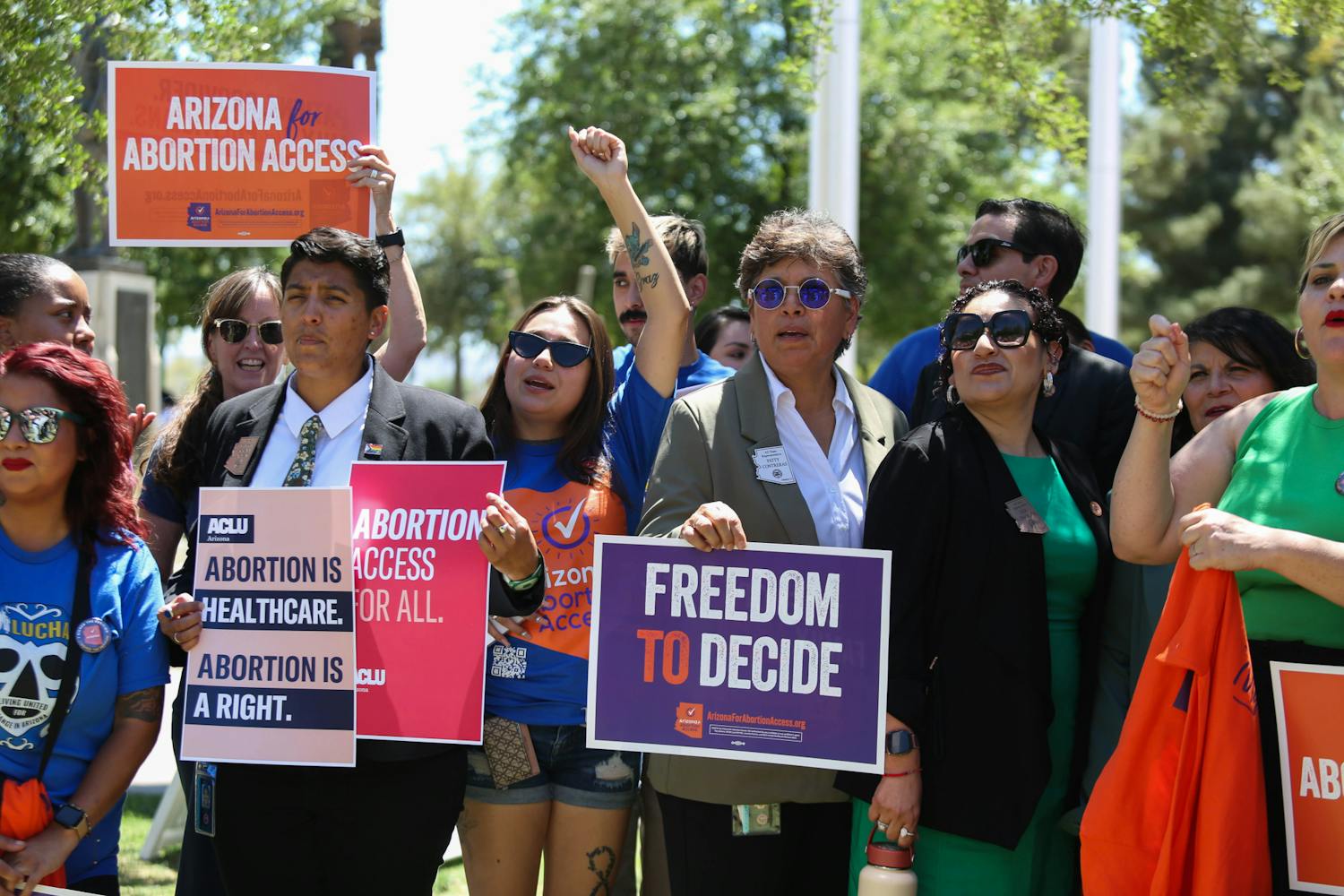As the nation watches Arizona grapple with immigration policy, ASU’s law college hosted some of the premier immigration law authorities at a conference Friday.
In the wake of the passion and controversy that followed the signing of Arizona’s Senate Bill 1070 last spring, the all-day conference was organized for a more civilized conversation about the laws, what they accomplish and what they mean for immigration and the states that implement them.
The conference, called “The Role of The States In Immigration and Policy Enforcement,” was held on the Tempe campus at the Sandra Day O’Connor College of Law.
“This conference was designed to have a more dispassionate and objective analysis of the many issues associated with this topic,” said Alan Matheson, law professor and dean emeritus at the law college.
Sandra Day O’Connor, retired Supreme Court Justice, was scheduled to begin the day’s events but was ultimately unable to attend. She sent a taped message instead.
“This is a very important topic, not just for Arizona but for the whole nation,” O’Connor said.
Keynote speaker Douglas Massey, sociology and public affairs professor at Princeton University, said immigration is one of the most important issues in current American society.
“Immigration has emerged as one of the main demographic drivers of what’s happening in the United States,” Massey said. “Immigrants are the demographic future of the United States.”
Massey explained what he sees as the reasons for the immigration crisis, which include federal mishandling of policy, militarization of the borders and lack of options for becoming a legal resident.
“The states have become involved because the federal government has mishandled immigration so badly,” Massey said. “All the studies show that immigrants are a net benefit to the United States ... but the costs are paid locally.”
He said Arizona has become the center of the immigration debate, but not just because of SB 1070.
Massey said that the major immigration corridors in San Diego, Calif., and El Paso, Texas, became inaccessible in the last decade because the government has added security and defenses.
However, Massey said policies like SB 1070 are counterproductive to their intentions.
“The U.S. has evolved increasingly repressive and hard-lined policy towards immigrants, especially those from Mexico,” Massey said. “Rather than fixing the situation, it’s actually made it worse on almost every dimension.”
Massey suggested that an earned legalization program be started so that undocumented residents could become citizens, and that the immigration quotas for Canada and Mexico be increased.
The 20 speakers at the conference included professors from law colleges at New York University, Yale University, Lewis and Clark College, University of Arizona and Texas Wesleyan University. Attorneys, legislators, community members and students also attended.
Thuynga Barr, a justice studies senior, became a U.S. citizen 10 years after she emigrated from Vietnam.
“Immigration is my passion,” said Barr, wearing a “Legalize Arizona” T-shirt. “I just want to see what the academic professionals’ point of view is.”
Barr said she was drawn to the conference because she is frustrated with immigration attitudes and wanted to hear more educated opinions on the topic.
She said she thinks people do not know enough about the process and motivations of immigrants and tend to over-simplify the problem.
“People that say ‘They should just get in line’ are uninformed,” Barr said. “You can’t just say ‘I want to go to the U.S.; I’ll just get in line.’”
Reach the reporter at svaltier@asu,edu



